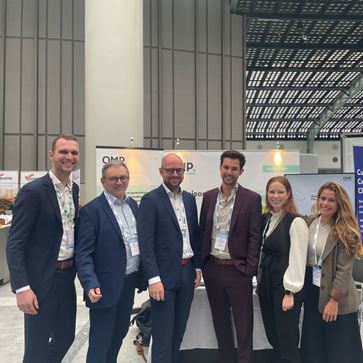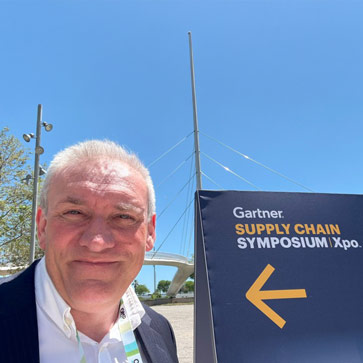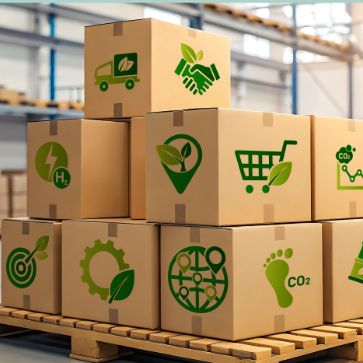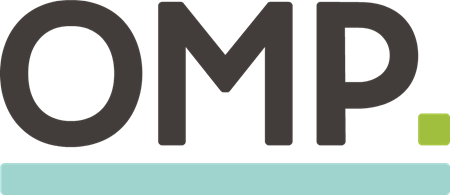
From challenges to solutions: key insights from LogiChem 2024
Robbert De Looff - April 24, 2024
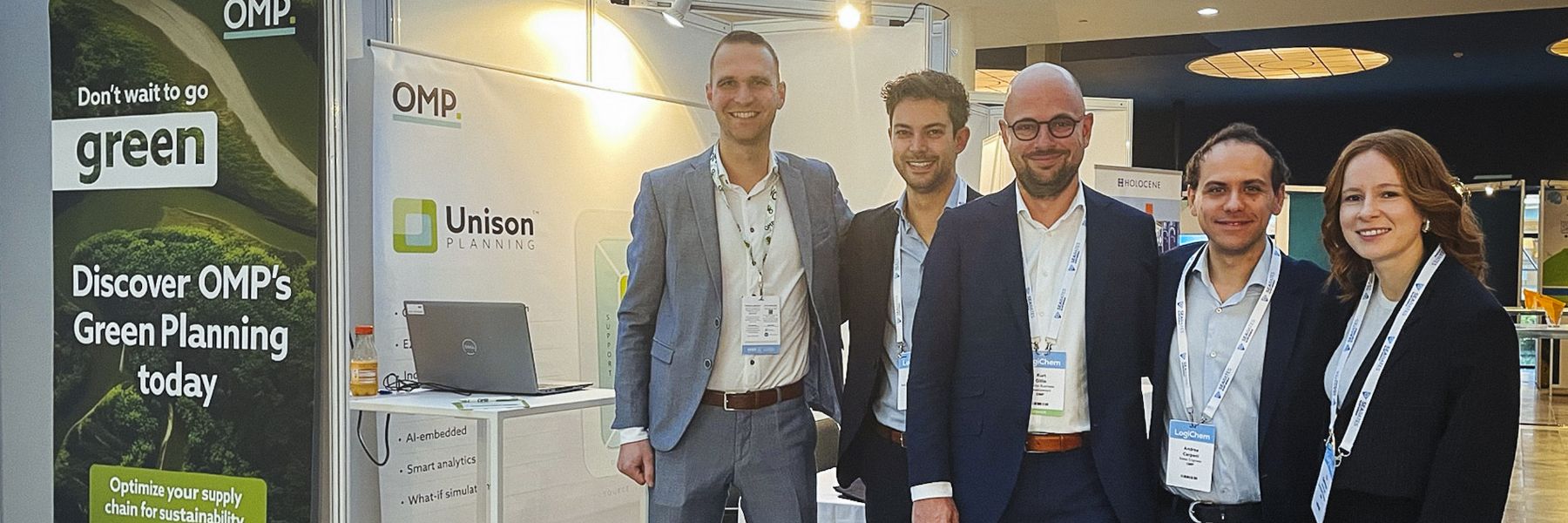
Let’s face it – 2023 was not a great year for the chemical industry. What’s worse, institutions such as the IMF and the World Bank predicted an even more challenging 2024, with limited and unpredictable economic growth, geopolitical conflicts, and increasing climate challenges as key contributors. But chemical companies are nothing if not resilient, so we were keen to tap into the industry’s market sentiment and future plans at LogiChem 2024 in Rotterdam. And, as in previous editions, LogiChem did not disappoint!
For those who couldn't make it to this year's event, fear not, as we delve into the key takeaways, from the necessity of end-to-end visibility to the integration of sustainability objectives into planning processes.
End-to-end planning has become an imperative
Blog post
What we heard most often is the need for planning processes and solutions to cover the complete end-to-end supply chain. It’s time to break down isolated departmental silos and embrace a holistic approach from procurement to delivery. As Elke Hartenstein from BASF put it: “only those with an end-to-end view of their supply chain can gain a competitive advantage”. Johan Matthijs, CoE Global Planning Director at AkzoNobel continued along the same lines when he outlined some of the recent successes his company achieved using OMP’s Unison PlanningTM to drive end-to-end planning, including marked improvements in forecast accuracy.
But it’s not only about using the right tools — harmonizing processes and workflows is just as important. Companies need to embrace a collaborative mindset and bring every department involved in the supply chain closer to each other. And despite the increasingly digital approach to collaboration, face-to-face interaction still builds connection in ways a videoconference will not — or as Justin Lanyon of Arkema stated: “You can’t manage your supply chain remote.”

Blog post
Of course, recognizing the importance of end-to-end planning is hardly a new insight: many companies have tried to move to value stream planning, but few have succeeded in complete transformation. The current economic pressure has, however, reignited interest in true integrated end-to-end planning and getting every departmental silo on the same page seems a little more realistic.
Standardization the key to increased efficiency
While modern supply chains are only becoming more complex, standardization has resurfaced as a way to become more efficient. Johan Matthijs from AkzoNobel highlighted how harmonizing processes to facilitate a seamless flow of information can drive performance improvements. By establishing common frameworks and protocols, companies can streamline operations, minimize errors, and enhance agility in planning and execution. Whether it's aligning data formats or unifying workflows, standardization lays the groundwork for sustainable growth and operational excellence.
Sounds too much like a marketing slogan? Think about it — moving to a single demand analytics center resulted in a 14% increased accuracy in lag 1 forecasting (store replenishment) and 22% in lag 3 (manufacturing). Clearly, there’s value in standardization!
The importance of setting clear priorities
Blog post

In today’s business climate, it’s impossible to optimize for everything. Supply chain planners need clear direction as to what is most important, so they can navigate market turbulence without resorting to firefighting. LogiChem 2024 underscored the necessity for companies to articulate their goals with clarity and precision — whether reducing carbon emissions, optimizing inventory levels, or enhancing supply chain resilience.
However, Evonik’s Ceylan Ünsal highlighted that dealing with disruptions requires more than just understanding the potential impact of a given event, it’s also about when and for how long the consequences will endure. One way of gaining these insights is by creating and comparing different scenarios to evaluate how business decisions affect supply chain performance. Without this critical capability, selecting the best reality-based plan becomes impossible.
Blog post
What are the key challenges for chemical companies?
Once again, we queried LogiChem participants on what they saw as the key challenges over the next few years. The top three challenges from this survey also reverberated during the OMP networking dinner on the first evening of conference. So, what is keeping chemical supply chain executives awake at night?
Bringing sustainability objectives into planning processes
Leveraging AI for planning automation
Tomorrow’s planners will have to deal with more disruptions and objectives than ever before. The use of AI and advanced analytics in fields from demand forecasting to inventory optimization was a common topic at our booth, where discussion often turned to augmenting the capacity and potential of human planners with explainable insights from AI models and by automating mundane planning tasks.
Mastering data quality
Amidst the deluge, maintaining clean, consistent, and accurate data emerged as a persistent challenge. Attendees grappled with strategies for ensuring data integrity and harnessing the power of data analytics to improve the quality of both master data and new, external demand signals that can help create a more responsive and agile supply chain.
Blog post
As the curtains close on LogiChem 2024 …
Once again, LogiChem was a vibrant encounter. We felt that most presenters seemed more reluctant to share hard numbers and results than in previous years. Just an impression or a logical consequence of more challenging times for the industry? Let us know what you think.
One thing remains clear: the chemical industry is undergoing profound transformation. From embracing sustainability as a strategic imperative to harnessing the power of data and technology, companies are navigating uncharted waters with a blend of innovation and resilience. The journey towards supply chain excellence is as dynamic as it is rewarding. And with each passing year, LogiChem continues to serve as a beacon of inspiration for industry leaders striving to shape the future of chemical logistics.
Are you ready to unlock the full potential of your supply chain? Let's talk.

Robbert De Looff
Excellence Manager Chemicals at OMP BE
Biography
Robbert is dedicated to maximizing the value of OMP's chemical solution for customers, striving for optimal efficiency every step of the way. Driven by a passion for sustainability and a fascination with optimization and value realization, he's always on the lookout for groundbreaking industry solutions to tackles challenges head-on.